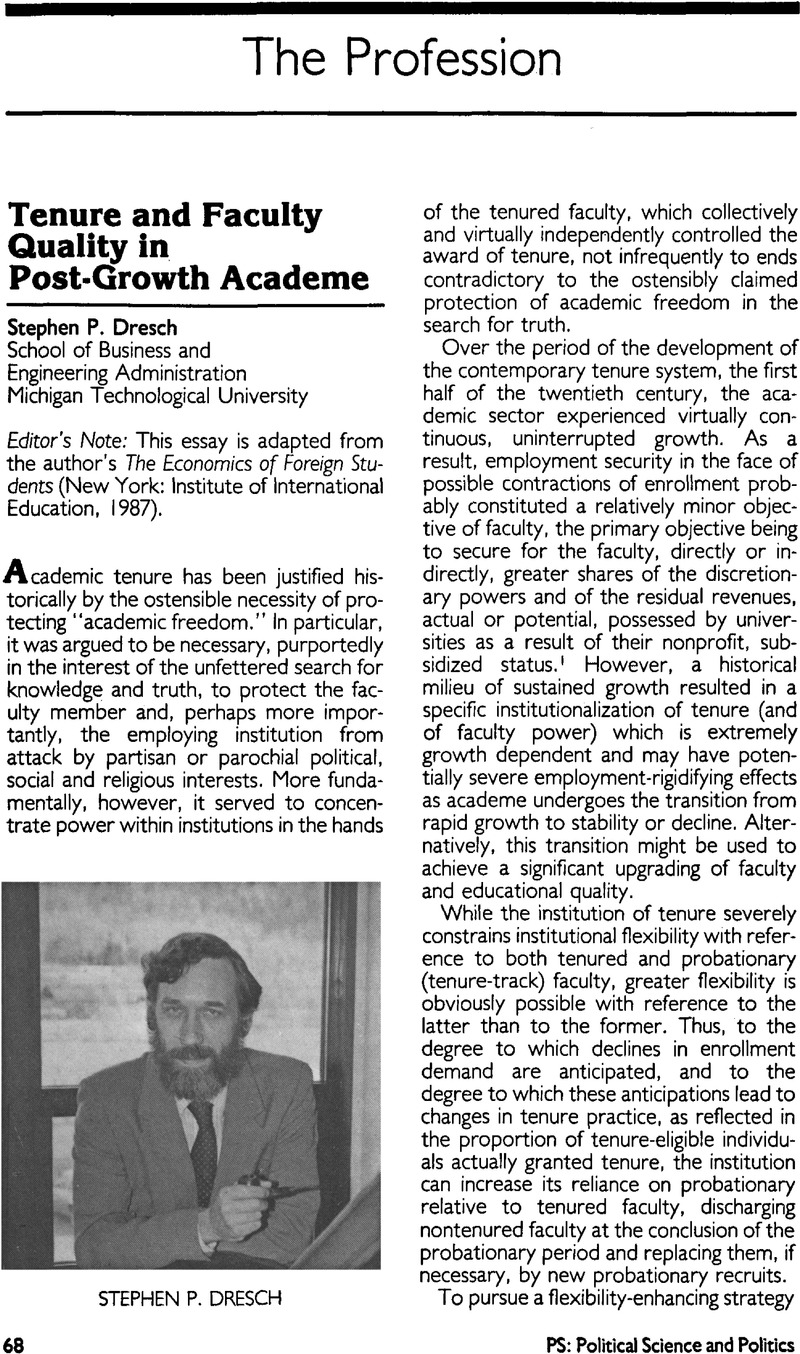No CrossRef data available.
Published online by Cambridge University Press: 02 September 2013

1. For an incisive analysis of the economic foundations of the system of academic tenure, see Armen A. Alchian. 1958. Private Property and the Relative Cost of Tenure. In Bradley, P. D., The Public Stake in Union Power, Charlottesville, VA: The University Press of Virginia, pp. 350–71Google Scholar, reprinted in Alchian, Armen A.. 1977. Economic Forces at Work, Indianapolis: Liberty Press, pp. 177–202.Google Scholar
2. Of course, denial of tenure is not the equivalent of capital punishment: The termination of a probationary faculty member does not reduce the aggregate supply of faculty services unless the disappointed individual elects as a result to withdraw permanently from the academic market. This would be likely only in a weak academic labor market. Also, the depressive effect of adverse changes in tenure prospects on the supply of faculty services to the individual institution could be compensated by the offer of higher current remuneration; thus, the fact that tenure criteria did not become more stringent elsewhere need not imply a reduction in the supply of faculty to an institution employing this strategy.